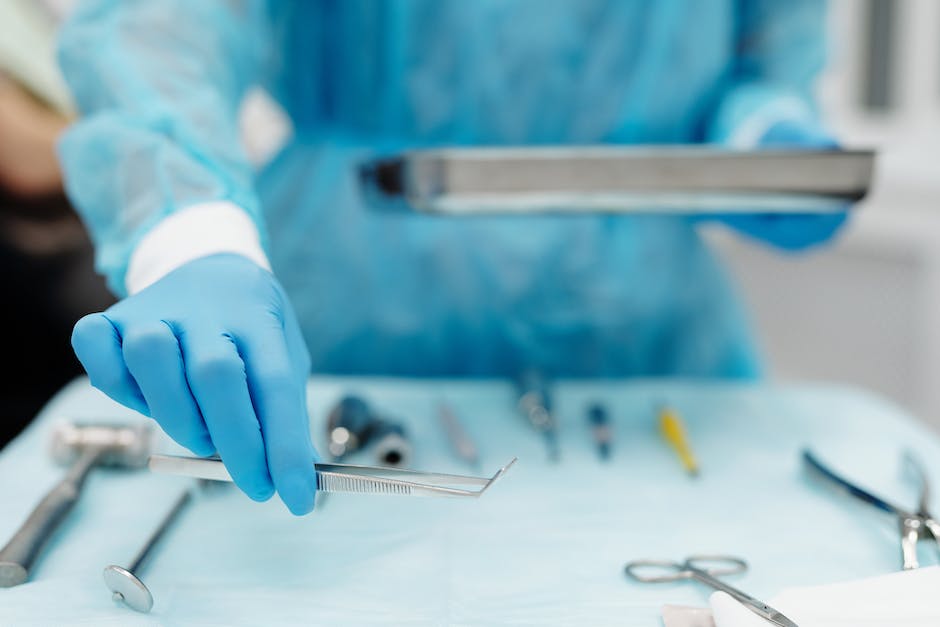Considered by many as the window to our conscious, subconscious and unconscious minds, dreams have been a focal point of curiosity and fascination for millennia. They are enigmatic nighttime occurrences where we traverse transcending boundaries of time and space. While every dream comes with a unique narrative, few themes remain common across cultures and individuals, one of them being ‘dental dreams’. Just like our conscious emotions often navigate the terrain of our dreams, could our dental health or issues be playing a part in our nightly narratives? Under layers of symbolism and metaphor might lie hidden clues about our oral health. In this discourse, we examine the fascinating world of dreams, specifically pertaining to dental health, and explore their commonalities, symbolism, and potential implications for real-life dental conditions.
Understanding Dreams: An Overview
Understanding Dreams: A Brief Explanation
Dreams are a universal human phenomenon that occur during our sleep cycle, particularly during the Rapid Eye Movement (REM) stage of sleep. They often contain a convoluted set of emotions, images, and narratives that can be fascinating, puzzling, terrifying, or sometimes even bland. While their function is not entirely understood, dreams are believed to have significant psychological implications and are an essential part of cognitive and emotional processing.
Theories behind dream generation are manifold. One prominent theory, Sigmund Freud’s psychoanalytic theory of dreams, suggests that dreams are manifestations of our deepest desires and anxieties. Carl Jung theorized that dreams serve the function of integrating our conscious and unconscious minds, thereby facilitating personal growth and self-understanding. More recent theories, based on cognitive neuroscience, propose that dreams might assist in memory consolidation or emotional regulation.
Dream Interpretation: Psychological Perspectives and Techniques
Dream interpretation is the process of assigning meanings to dreams. Psychoanalytic interpretation, initiated by pioneers like Freud and Jung, forms the cornerstone of traditional dream interpretation. However, as psychology has evolved, many different schools of thought have developed distinct approaches to interpreting dreams.
In psychoanalytic approaches, symbols in dreams represent hidden desires and conflicts. For instance, if you dream of losing teeth, Freudian interpretation might suggest it stems from fear of emasculation or sexual impotence. Meanwhile, Jungian interpretation treats dreams as mirrors of our psyche, providing insights into our personal unconscious as well as collective unconscious archetypes.
Psychologists who follow cognitive perspectives often view dreams as reflections of waking life and thought processes. From this viewpoint, a dream about dental health could reflect real-world concerns about your dental hygiene or a preoccupation with appearances.
Decoding Dental Dreams: A Comprehensive Guide
Numerous individuals experience dreams revolving around teeth and dental health which carry various interpretations. These interpretations are often influenced by personal experiences, cultural interpretations, and psychological connotations. Nonetheless, there are frequent symbolic associations tied to such dreams in the realm of dream interpretation.
For instance, dreams about losing teeth are common and in Freudian psychology, these dreams are seen as a reflection of fear, representing a feeling of powerlessness or being controlled. They are also considered as an anxiety symbol connected to the aging process or the fear of death, with the loss of teeth used as a metaphor.
Another typical dream is one that features rotten or decaying teeth, symbolizing hidden fears, guilt, or the apprehension of certain secrets coming to light. These dreams might also reflect one’s regret over harsh words spoken impulsively or irrationally.
Dreams about brushing or cleaning teeth could be associated with worries about personal appearance and social judgments. Additionally, they might suggest a yearning for purification or the need to remove oneself from an undesirable circumstance.
Dreams about tooth extraction often reflect feelings of loss or significant changes in life, symbolically associating losing a part of oneself to the extracted tooth.
The subjectivity of dream interpretation cautions against considering these interpretations as rigid standards. The context of the dream, alongside personal life events, lay the foundation for a thorough understanding of dreams about dental health.

Common Dental Dreams
Dissecting Common Dental Dreams: Teeth Falling Out
One of the most frequently experienced dental dreams is of teeth falling out. This dream scenario can be hauntingly vivid, making individuals visualize their teeth slowly loosening and detaching, causing great distress and panic. Participants in these dreams often report feeling the vacant space in their mouth and find themselves looking at the fallen teeth in their hand, or even seeing blood. The regularity of such dreams varies from being infrequent to recurring, depending on factors like stress levels, personal circumstances, or the consumption of particular substances, such as alcohol or nicotine.
Variations in Dental Dreams: Teeth Breaking or Being Pulled
Another common variation of dental dreams involves teeth breaking or being pulled out. In these dreams, individuals endure a sensation of their teeth crumbling, cracking, or being forcefully yanked out. The experience can be unsettling and extremely realistic, prompting people to check their teeth upon awakening to ensure they are still intact.
Interpretation of Dental Dreams
While the interpretation of dreams is a highly subjective and individualized process, researchers have proposed a common interpretation for dental dreams. Frequent dreams about teeth falling out may be an internal manifestation of an individual’s fear or anxiety about change, aging, or personal loss. On the other hand, dreams about teeth breaking or being pulled might be an indication of a person’s sense of powerlessness or loss of control in a particular situation in their life. However, it should be noted that these interpretations may not hold true for everyone, as dreams are a personal and highly individual phenomenon.
Factors Influencing Dental Dreams
Many researchers believe that there are several influencing factors that can lead to dental dreams, chief among them are stress and anxiety. High-stress levels, especially related to feelings of helplessness, can trigger such dreams. Anxiety about personal appearance or public opinion can also cause dreams concerning teeth—given that teeth are crucial to physical appearance. Furthermore, certain stimulants, including caffeine, can disrupt sleep patterns and lead to more vivid and potentially disturbing dreams, including those about dental health. Certain medications can also influence dream behavior and might prompt more frequent or vivid dental dreams.
Use of Dental Dreams in Psychoanalysis
Sigmund Freud, the founder of psychoanalysis, considered dental dreams as an important part of dream interpretation. According to Freud, dreams about teeth falling out are deeply rooted in the fear of castration that exists in both men and women. This theory, however, has received criticism for its overemphasis on sexual connotations. Modern psychologists are more inclined to correlate these dreams with anxiety and change, suggesting they serve as an emotional release for the individual experiencing them.
Despite the unsettling nature of dreams related to dental health, it’s essential to remember that they are not directly related to your actual dental health. These dreams are psychological in nature, often surfacing from our subconscious to reflect deeper fears or concerns we might be harboring.

Symbolism in Dental Dreams
Digging Deeper: Understanding Dental Dreams
We classify dreams about dental health as common dreams, typically carrying potent symbolic meanings. The realm of dream interpretation suggests that our subconscious minds communicate through symbolic languages, articulating our innermost feelings through intricate scenarios in our dreams. When it comes to dreams about teeth or dental health, they can represent a wide array of feelings, ranging from anxiety and adaptability, to reflections of self-worth and inner strength.
Tooth Loss Dreams: Symbol of Fear and Change
Quite commonly, people dream about losing their teeth. According to Freudian psychoanalysis, tooth loss might symbolize a fear of being emasculated or losing sexual appeal. Outside of Freudian theory, losing teeth in a dream is often considered a symbol of a transformative life event or significant changes.
For instance, if you’re going through a major transition in life like a career shift or a divorce, tooth loss dreams might occur more often. This may stem from feelings of insecurity or nervousness about the unknown future.
Crumbling Teeth: Reflecting Anxiety and Loss of Control
Another common dental dream scenario is having your teeth crumble or decay. On a symbolic level, this may be indicative of feeling anxious, powerless, or out of control in waking life. The decay of teeth might signify a slow, deteriorative process in some aspect of your life or a fear of losing something precious.
Dreams of Brushing or Cleaning Teeth: Control and Protection
On the other hand, dreams about brushing or cleaning teeth symbolize taking care of something or exerting control over a situation. This relays your subconscious desire to keep things clean, to maintain order, and to protect what you value.
Painful Dental Dream: Indicating Emotional Pain
If you’re experiencing a painful dental scenario in your dreams, such as having root canal treatment or getting a tooth extraction, it may symbolize emotional or psychological pain. These dreams can be indicative of repressed feelings of hurt, grief, or regret that are manifesting in dream form as physical pain.
Personal Interpretation of Dental Dreams
It’s noteworthy to consider that dream symbolism varies greatly among individuals due to factors such as personal experiences, circumstances, and emotional states. For instance, a dental dream could merely be an echo of an upcoming dental appointment for some, while for others, it may indicate deeper psychological or emotional issues.
Understandably, these interpretations are far from comprehensive as the same dental dream could convey distinct meanings based on the personal context and specific experiences of an individual’s waking life. Thus, to decode the true message of your dental dream, you should engage in careful introspection alongside using these theoretical frameworks.

Implications for Real-Life Dental Health
Real-World Dental Health and its Reflection in Dreams
Interestingly, there might be a potential link between dreams about dental health and real issues concerning dental health. Although the topic is still largely speculative, some research suggests a possibility of such a correlation. Several dream therapists and scientists propose that if a person suffers from a certain dental issue like toothache or gum disease, it could be represented symbolically in their dreams by their unconscious mind.
Can Real-Life Dental Pain Trigger Dental Dreams?
It is indeed possible that dental ailments like tooth decay, infections, or gum diseases could play a role in influencing dreams about dental health. Significant discomfort or pain can disrupt sleep and might influence the nature of dreams. Pain in human teeth is known to often occur at night, which coincides with our dreaming periods. This means real-life pain in your teeth could be transferred into your dreams, manifesting in images associated with dental health.
Dental Dreams: Symbolic or Psychological?
Contrary to the previous theory, some psychologists argue that dreams about dental health are largely symbolic and psychological. They believe that the dreams are often related to a person’s concerns about personal appearance, self-image, or fear of rejection and judgement. Historically, dream interpretation theories have commonly associated such dreams with feelings of insecurity or loss of control.
According to psychoanalyst Sigmund Freud, dreaming of teeth falling out could be related to castration or fear of impotence. However, contemporary psychologists often argue that these dreams could reflect anxieties about a large pending decision, such as a career change or relationship complications.
Dental Dreams: A Psychological Warning Signal
Another theory suggests that dreams about dental health function as psychological distress signals. These dreams are thought to be the subconscious mind’s way of highlighting an individual’s worry about health in general. For instance, a dream about losing a tooth may not directly correlate with a dental issue, but instead could indicate anxiety about health conditions or aging.
The Necessity of Further Research
Though a definitive link between dental health dreams and actual dental health conditions has yet to firmly be proven, anecdotal evidences suggest a possible connection. Both the psychosomatic and symbolic interpretations of dental dreams hold some validity and warrant further exploration. Meanwhile, it’s always prudent for individuals experiencing frequent or distressing dreams about dental health to discuss the matter with a professional, including, if relevant, with a dental healthcare provider.

Just as our dreams weave stories from the strings of our waking experiences, they reflect our fears, anxieties, ambitions, and perhaps, also our health problems. Dental dreams indeed hold a peculiar place in this realm, owing to their remarkable consistency across different cultures and individuals. However, interpreting these dreams as indications of actual dental issues may not be as straightforward as it seems. It’s important to remember that while dreams can sometimes illuminate aspects of our overall health status; they are predominantly symbolic and psychological in nature. The goal, therefore, should be to see dental dreams as prompts to examine our oral health properly and maintain a good dental hygiene rather than outright diagnostics.
